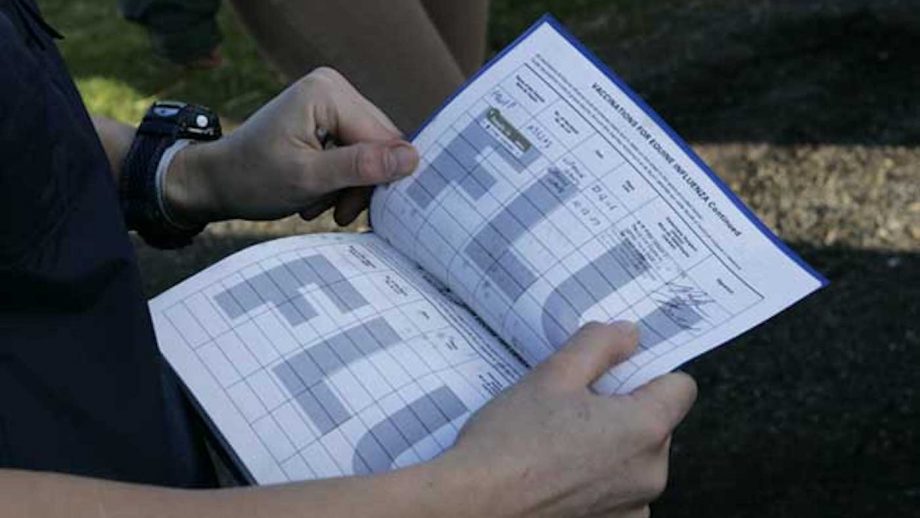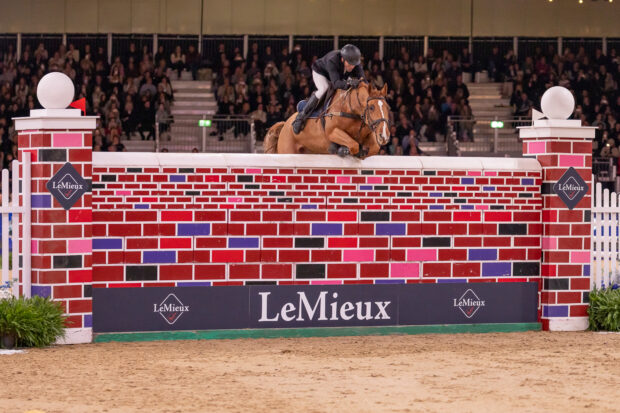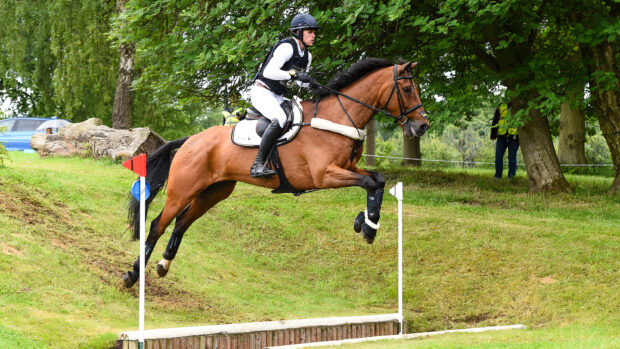All horses arriving at affiliated events must have had a flu booster vaccination within six months or they will be turned away.
British Eventing (BE) made the announcement last night (21 February) and the new rule applies both to competition horses and travelling companions.
Some organisers, including Great Witchingham (1) (22 to 24 March) had already told competitors their horses would need a six-month booster in order to compete at their event. Now this new rule brings all fixtures under the same requirements.
With the first BE events of the season starting in eight days’ time (2 March), owners of horses entered have limited time to ensure their vaccinations are in line.
“Following a further review of our policy regarding vaccinations, British Eventing is implementing an updated vaccination policy across all BE fixtures,” said a spokesman.
“The changes to vaccination requirements will be effective from 1 March 2019 until further notice, it will be continually monitored and reviewed based on the current equine flu status and advice from industry experts, including veterinarians.”
He added the policy will be “enforced at all BE fixtures” to ensure “officials, riders, owners or person responsible, have a clear set of rules to follow without variation between venues and events.”
“We thank all members for their cooperation with the new rules and remind all competitors to please make sure that all horses’ passports are available for checking when collecting numbers,” he added.
Under BE rules, vaccinations cannot be given on the day of a competition and there is no seven-day stand-down period. A number of owners have expressed concerns over vaccinating so close to a competition. Other venues and organisations including the British Horseracing Authority (BHA), Pony Club and Point-to-Point Authority (following BHA Rules), require a clear six-day break between vaccination and arrival at a fixture.
Passports and vaccination records must accompany all horses on board a trailer or horsebox to an event.
Article continues below…
You might also be interested in:

Insurance warning: unvaccinated horses risk invalidating cover for flu claims
An insurance broker has urged owners to check their horses’ vaccinations are up to date

Equine flu: what all owners need to know to protect their horses

Subscribe to Horse & Hound magazine today – and enjoy unlimited website access all year round
The BE guidance adds:
- Any horse without a passport will be sent home, along with his travel companions
- Passports and vaccination records in accordance with the new rules must be carried for all horses on board any vehicle. Any horses without compliant vaccination records will be asked to leave the site, along with any others which they may have travelled with.
- A booster given within seven days of the event is fine, provided the vaccination was given at least the day before the horse arrives at the event, and is not more than one year after the previous booster. (see Rule 10.2.4)
- If only the primary course has been given, this is fine, as long as the horse has had the first two injections that make up the primary course, and the second injection was given within the last six months
- Historical discrepancies (ref: rule 10.2.3) — in cases where there are historical discrepancies (e.g. booster was given five days late in 2014), but the primary course is correct and the horse has had the most recent booster within the last six months, it will be at the discretion of the vet and BE steward as to whether the horse may compete.
For all the latest news analysis, competition reports, interviews, features and much more, don’t miss Horse & Hound magazine, on sale every Thursday



